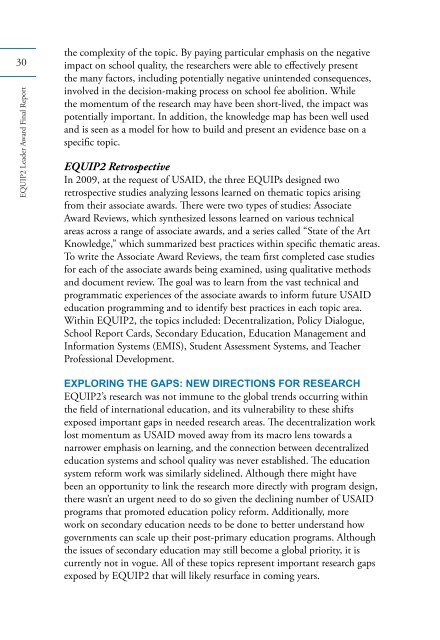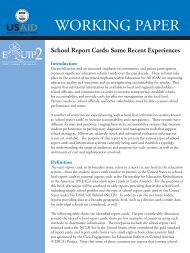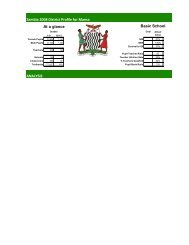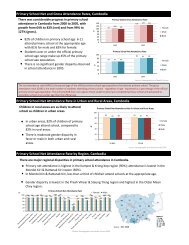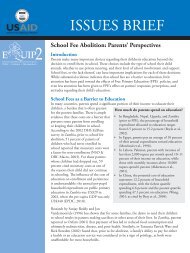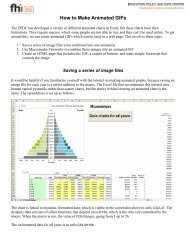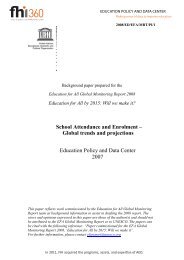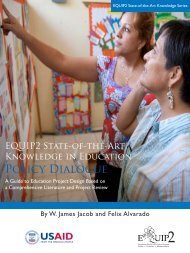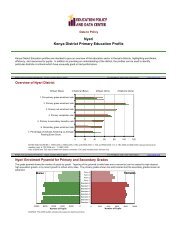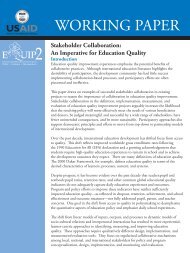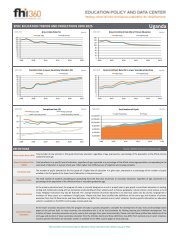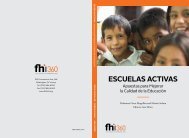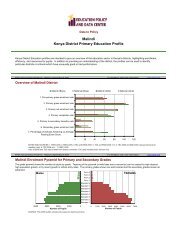EQUIP2 Final Report.pdf - Education Policy Data Center
EQUIP2 Final Report.pdf - Education Policy Data Center
EQUIP2 Final Report.pdf - Education Policy Data Center
You also want an ePaper? Increase the reach of your titles
YUMPU automatically turns print PDFs into web optimized ePapers that Google loves.
30<br />
<strong>EQUIP2</strong> Leader Award <strong>Final</strong> <strong>Report</strong><br />
the complexity of the topic. By paying particular emphasis on the negative<br />
impact on school quality, the researchers were able to effectively present<br />
the many factors, including potentially negative unintended consequences,<br />
involved in the decision-making process on school fee abolition. While<br />
the momentum of the research may have been short-lived, the impact was<br />
potentially important. In addition, the knowledge map has been well used<br />
and is seen as a model for how to build and present an evidence base on a<br />
specific topic.<br />
<strong>EQUIP2</strong> Retrospective<br />
In 2009, at the request of USAID, the three EQUIPs designed two<br />
retrospective studies analyzing lessons learned on thematic topics arising<br />
from their associate awards. There were two types of studies: Associate<br />
Award Reviews, which synthesized lessons learned on various technical<br />
areas across a range of associate awards, and a series called “State of the Art<br />
Knowledge,” which summarized best practices within specific thematic areas.<br />
To write the Associate Award Reviews, the team first completed case studies<br />
for each of the associate awards being examined, using qualitative methods<br />
and document review. The goal was to learn from the vast technical and<br />
programmatic experiences of the associate awards to inform future USAID<br />
education programming and to identify best practices in each topic area.<br />
Within <strong>EQUIP2</strong>, the topics included: Decentralization, <strong>Policy</strong> Dialogue,<br />
School <strong>Report</strong> Cards, Secondary <strong>Education</strong>, <strong>Education</strong> Management and<br />
Information Systems (EMIS), Student Assessment Systems, and Teacher<br />
Professional Development.<br />
EXPLORING THE GAPS: NEW DIRECTIONS FOR RESEARCH<br />
<strong>EQUIP2</strong>’s research was not immune to the global trends occurring within<br />
the field of international education, and its vulnerability to these shifts<br />
exposed important gaps in needed research areas. The decentralization work<br />
lost momentum as USAID moved away from its macro lens towards a<br />
narrower emphasis on learning, and the connection between decentralized<br />
education systems and school quality was never established. The education<br />
system reform work was similarly sidelined. Although there might have<br />
been an opportunity to link the research more directly with program design,<br />
there wasn’t an urgent need to do so given the declining number of USAID<br />
programs that promoted education policy reform. Additionally, more<br />
work on secondary education needs to be done to better understand how<br />
governments can scale up their post-primary education programs. Although<br />
the issues of secondary education may still become a global priority, it is<br />
currently not in vogue. All of these topics represent important research gaps<br />
exposed by <strong>EQUIP2</strong> that will likely resurface in coming years.


